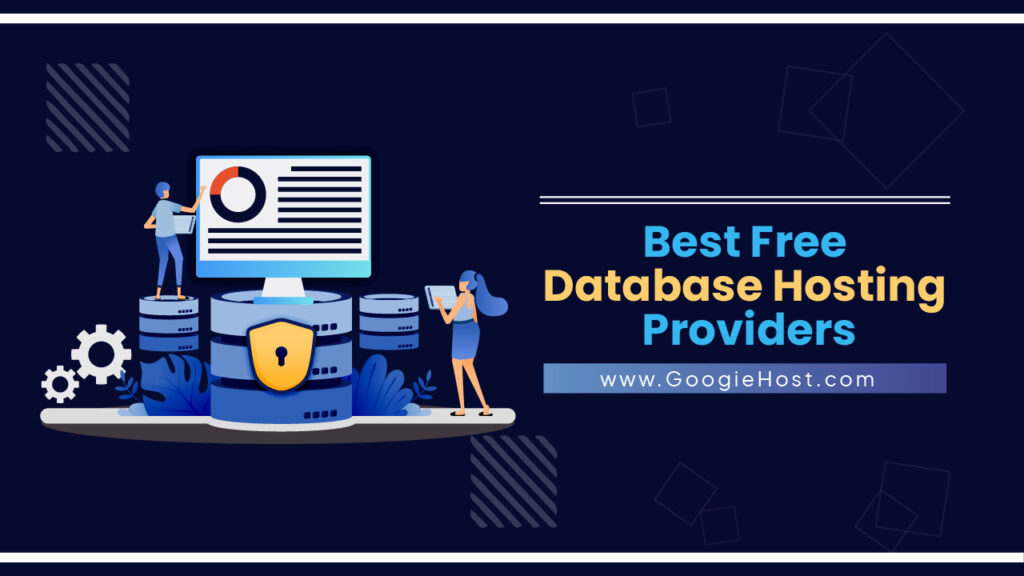Trick Features to Search For When Selecting a Data Source Provider
Picking a database carrier is a vital decision that can substantially impact your company's information and procedures monitoring strategy. Among the crucial attributes to take into consideration are scalability alternatives, which ensure that your system can adapt to growing demands.
Scalability Options
When picking a database service provider, comprehending scalability alternatives is crucial to guaranteeing that the picked solution can suit future growth. Scalability describes the capability of a data source system to broaden its capability and efficiency in reaction to boosted demand. There are 2 main types of scalability: straight and vertical.
Vertical scalability, or "scaling up," includes boosting a single web server's resources, such as CPU, RAM, or storage space. This approach can be uncomplicated and economical for smaller applications however might reach a limitation where additionally upgrades are as well pricey or not practical.
Horizontal scalability, or "scaling out," involves including much more servers to distribute the tons. This method allows for greater adaptability and can accommodate considerable boosts in data volume and individual traffic (database provider). It is specifically advantageous for cloud-based data source solutions that can dynamically assign resources based upon need

Safety And Security Steps

When evaluating security procedures, take into consideration the implementation of security procedures (database provider). Data-at-rest and data-in-transit security are crucial to make sure that sensitive details continues to be secured, also in case of a security violation. Additionally, try to find suppliers that use solid authentication systems, such as multi-factor authentication (MFA), to even more enhance access control
Normal safety and security audits and compliance with market requirements, such as GDPR or HIPAA, are a sign of a supplier's commitment to data protection. Moreover, ask about their incident feedback strategy; a durable strategy can reduce the effect of any type of potential security incident.
Efficiency Metrics
Assessing performance metrics is necessary for companies to guarantee that their picked data source service provider meets operational requirements. Key performance metrics include action scalability, throughput, and time, which jointly determine the effectiveness of data source operations under varying loads.
Action time is critical, as it reflects exactly how swiftly the data source can refine questions and return results. Organizations should look for metrics that show typical feedback times throughout top and off-peak hours. Throughput, typically measured in purchases per 2nd (TPS), gives understanding into the data source's capacity to take care of high quantities of demands without performance deterioration.
Scalability evaluates the data source's capacity to expand with the company's needs. A robust database service provider need to demonstrate straight and vertical scaling abilities, enabling seamless changes as needs change. Furthermore, understanding latency, particularly in dispersed systems, can assist companies evaluate the responsiveness of the data source across various geographical locations.
Client Support
Dependable consumer support is a cornerstone of effective data source management, giving organizations with the assistance required to deal with issues and maximize efficiency. When choosing a data source company, examining the level of consumer support they supply is crucial. A robust support system official statement need to consist of multiple channels of interaction, such as phone, e-mail, and live chat, making sure that customers can access help whenever they need it.
In addition, responsive support groups that are offered 24/7 significantly improve the dependability of the data source service. Trigger response times and effective resolution of problems can significantly minimize downtime and boost total performance. It is also helpful to consider the schedule of committed support personnel, that can use customized help based upon an organization's particular demands.

Prices Framework
When taking into consideration a data source company, the prices structure is an essential variable check here that can dramatically influence a company's spending plan and general strategy. A flexible and clear prices model is essential for straightening the data source costs with business demands - database provider. Organizations needs to review whether the prices is based on intake, per user, or a flat rate, as each design can produce different monetary ramifications in time
It is very important to examine any additional expenses related to the provider's solutions, such as information storage space fees, deal prices, and assistance charges. Some companies may use tiered pricing, permitting scalability as the company grows, while others could impose strict limitations that can end up being costly as data requirements raise.
Additionally, companies need to take into consideration the lasting worth of the data source remedy. While lower first costs can be enticing, they may not account for future upgrades, maintenance costs, or integration costs. Conducting a comprehensive cost-benefit analysis will help identify one of the most appropriate rates framework that balances support, efficiency, and scalability, eventually ensuring that the picked data source company lines up with the organization's economic and functional purposes.
Verdict
In verdict, selecting a database supplier demands careful consideration of various vital attributes. Examining efficiency metrics enables the recognition of reliable data sources, and obtainable client assistance improves the general individual experience.
Choosing a database provider is an essential decision that can substantially influence your organization's operations and information administration technique.When choosing a database service provider, understanding scalability alternatives is crucial to ensuring that the picked solution can suit future growth. When choosing a database supplier, examining the level of customer assistance they supply is important.When taking into consideration a data source supplier, the rates structure is a critical try these out aspect that can substantially affect an organization's budget and overall strategy. Conducting a detailed cost-benefit analysis will certainly aid identify the most appropriate rates framework that balances performance, assistance, and scalability, inevitably making sure that the chosen database provider aligns with the organization's operational and economic objectives.